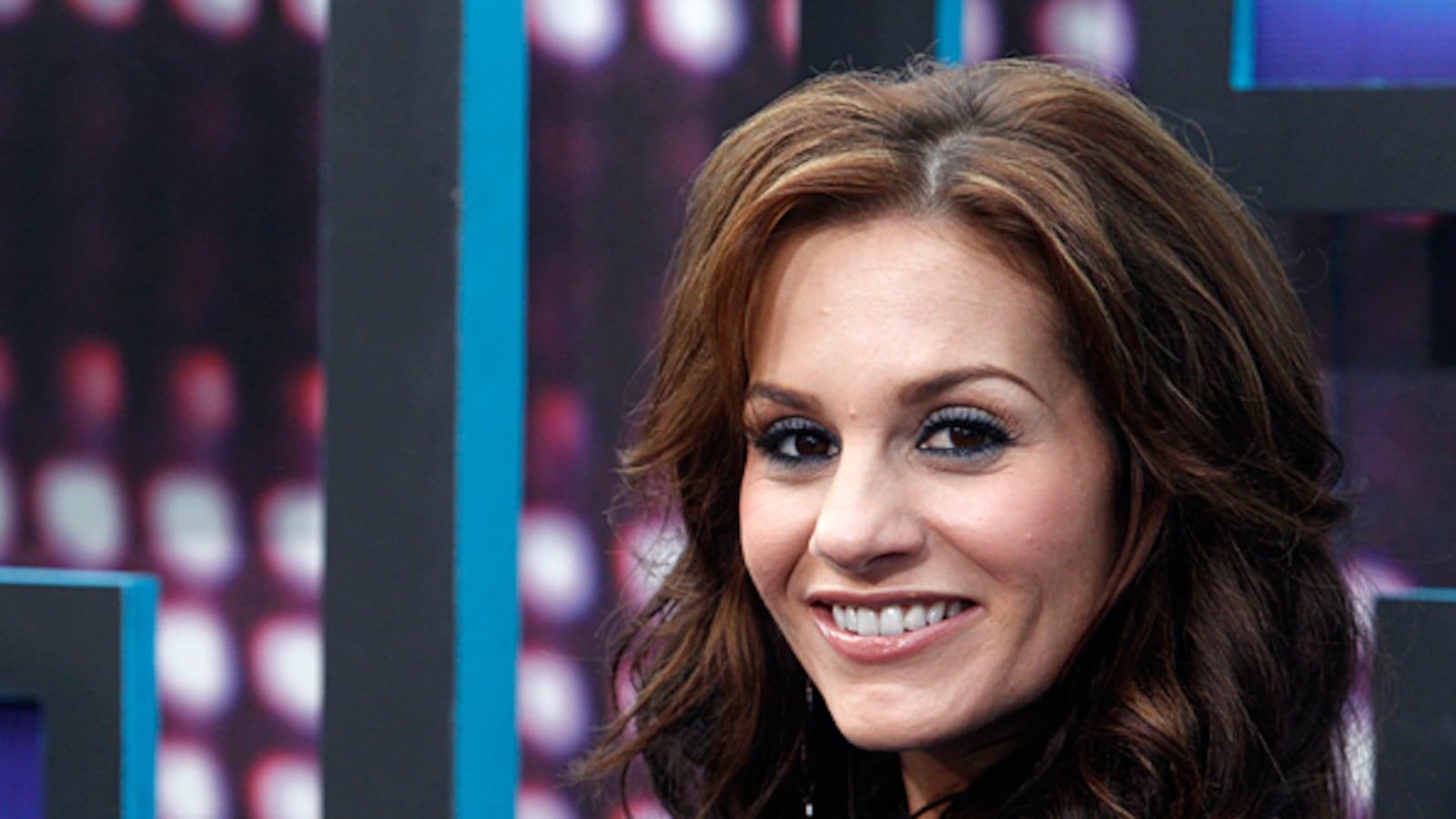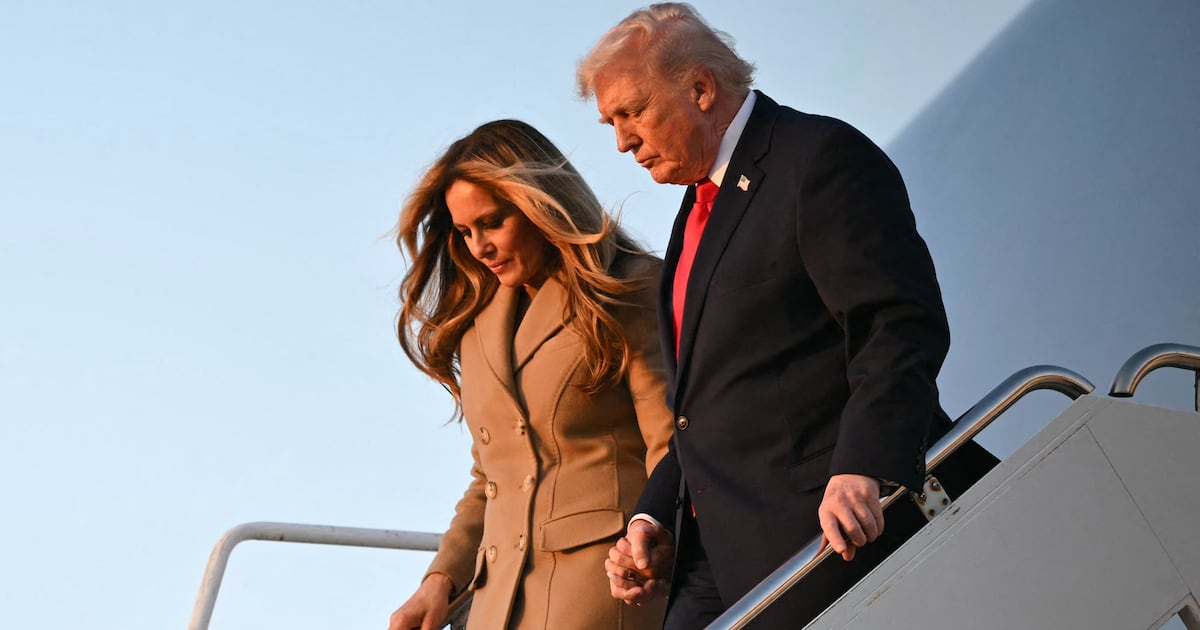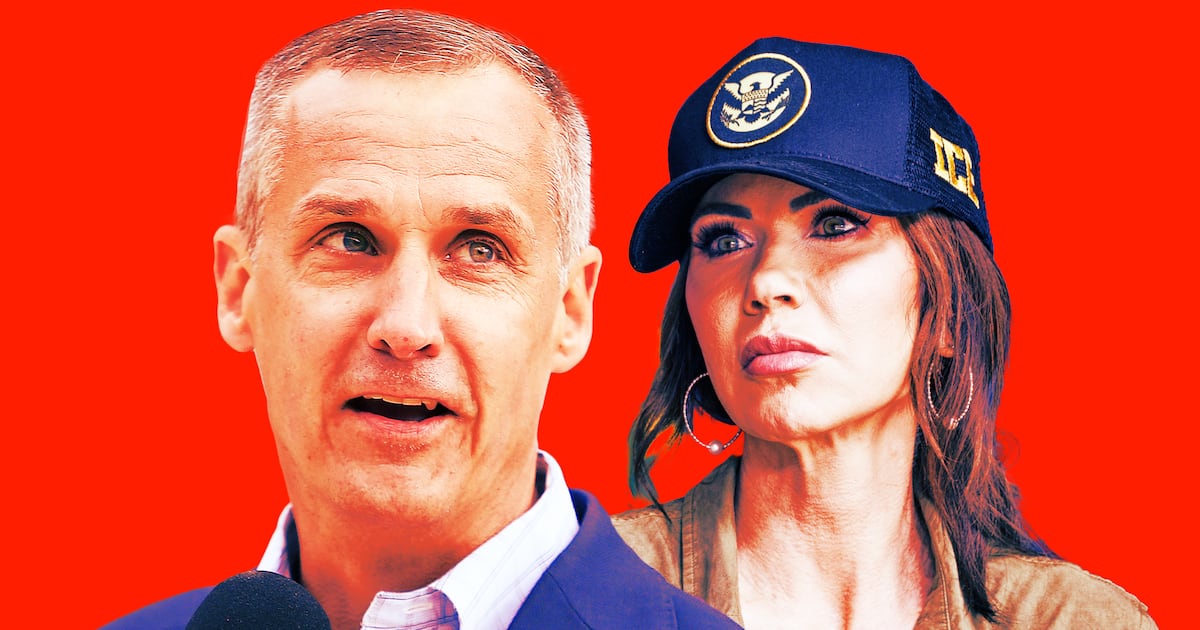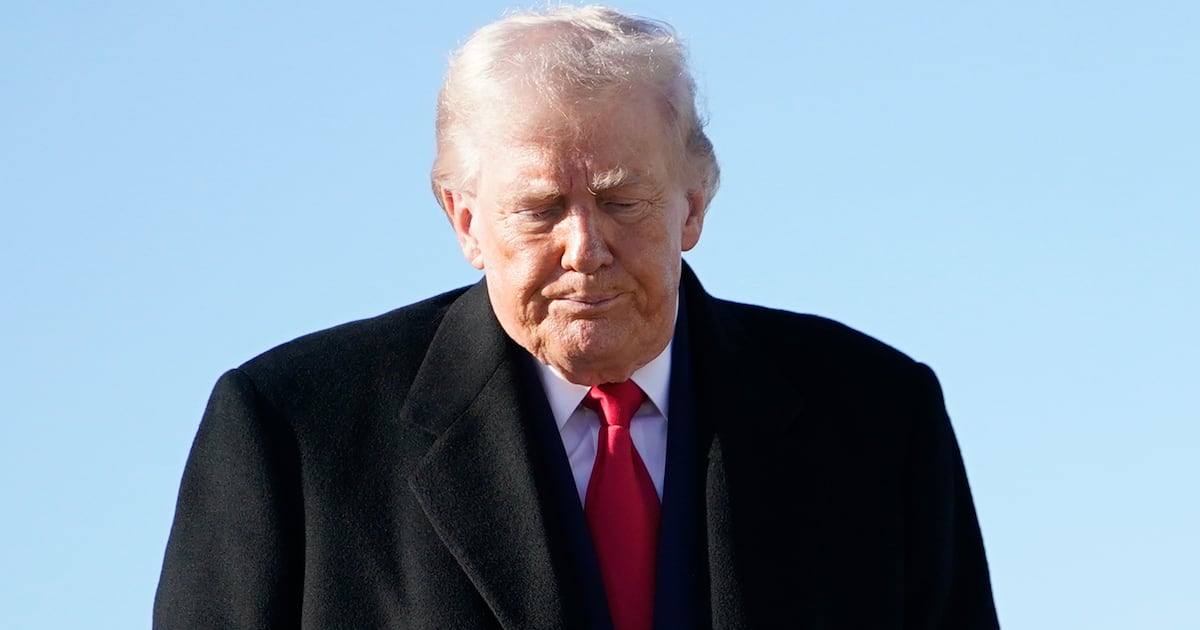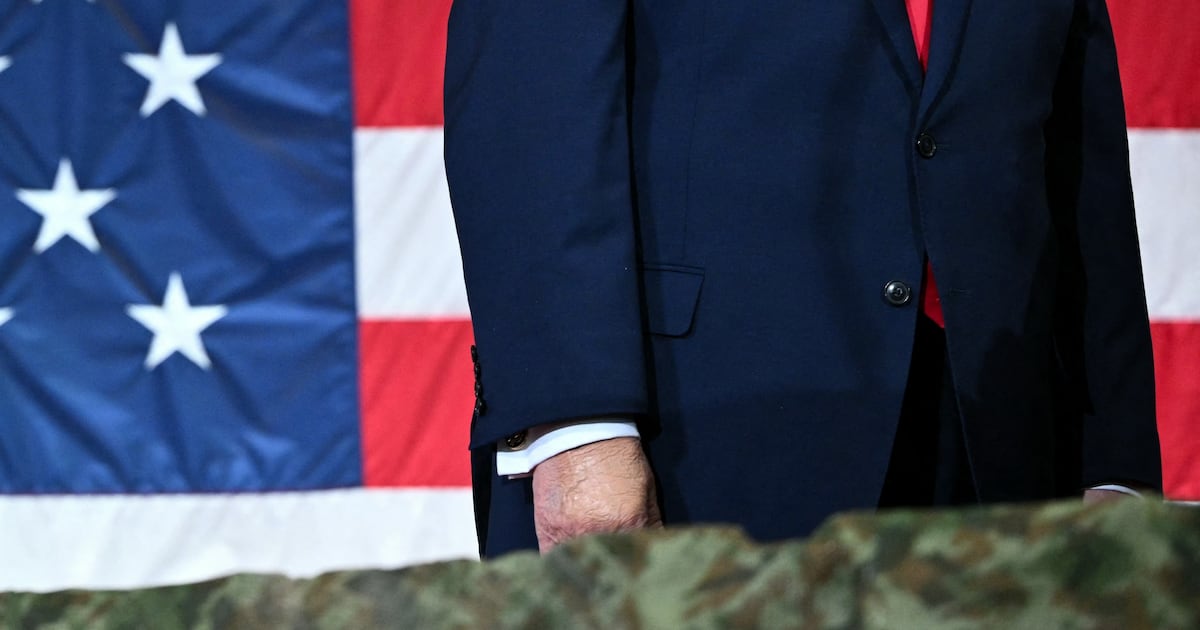Kara DioGuardi—the songwriter, record company executive, and former American Idol judge—has written a memoir, released this week, called A Helluva High Note. Within it, DioGuardi, 40, who wrote the chatty, readable book without a ghostwriter, chronicles her rise in the music business after an upper-middle-class upbringing in New Rochelle, New York. She’s no scandalmonger: The secrets she reveals—about being molested by a family friend at age 11, her all-consuming eating disorder as a young adult, being raped by a music producer, and the egregious sexual harassment she experienced from a “hugely successful international artist” she had been hired to write songs for—are told from her personal perspective, and she’s not naming names.
Nevertheless, when news of the sexual assaults and harassment leaked last week, DioGuardi found herself in the center of a gossip swarm. Which she didn’t like at all. “It was positioned in a way that’s totally not about who I am,” DioGuardi said Friday. “Like I’m a victim. I’m anything but a victim.”
She wrote about those parts of her life, she said, because they “affected my music” and “affected me as a person to get me to where I am.” But now that the book is about to be unveiled to the world, she finds herself losing control over its contents. “I wake up and I’m the poster child for molestation,” DioGuardi said. “And then my family is going crazy. You know, like, ‘Oh my God, I didn’t even know this.’”
The intimate revelations of DioGuardi’s life are one leitmotif of the book; another, which will also cause a stir, is her account of her two-year-long stint on American Idol. DioGuardi—who, prior to Idol, had been a hugely successful behind-the-scenes presence in the music business as a writer specializing in anthemic lady hits for such singers as Gwen Stefani (“Rich Girl”), Kelly Clarkson (“Walk Away”), Christina Aguilera (“Ain’t No Other Man”), Celine Dion (“Taking Chances”), and Pink (“Sober”)—joined the Fox show in its eighth season as “the polarizing fourth judge” (her words).
That she was augmenting the Simon Cowell/Paula Abdul/Randy Jackson trio, which, arguably, did not need augmentation, proved to be a challenging task—to many fans and critics, DioGuardi was an awkward intruder. She was more than aware of the harsh reception. Here are some phrases DioGuardi uses to describe her Idol experience in the book: "Sick to my stomach," "rejected and disrespected publicly," "mentally, physically, and emotionally challenging," "barely survived," "crucified by the American public," "I wanted to DIE," "state of terror," "the sorrow poured out of me," "the depths of humiliation." About her relationship with Cowell, who, for her first season on the show alternated between ignoring DioGuardi and speaking to her disdainfully, she writes, "I hated myself for seeking his approval." And her description of Season 8 finalists Kris Allen and Adam Lambert singing “No Boundaries,” the tepid original song she had co-written for the finale? "Watching them sing that live was like watching a plane fall from the sky."
“There were days when I was like, ‘Oh my god, this is hard—I don’t know why I’m doing this.’ ”


“When you put it all together like that, you don’t realize within some of those words were happy moments,” DioGuardi said with a laugh after hearing some of that read back to her. “It sounds horrifying!”
It really, really does. For one, DioGuardi was unaware that she’d been hired in part, she writes, “to keep Paula in check, since her contract was up in a year.” Abdul was her friend, but DioGuardi found herself in the position of not being able to tell her she’d been cast—instead Abdul was (unpleasantly) surprised that there was a new female judge.
“Looking back, maybe I should have called her and said, ‘They’re not going to tell you this, but I’m going to be showing up tomorrow,’” DioGuardi said. But Abdul “probably wouldn’t have showed up. I said in the book that I apologize.”
DioGuardi asked to be let out of her own Idol contract last summer after it became clear that the now Cowell-less show was in full reboot mode—there were rumors that she either had been or would be fired, anyway. In the book, she presents an email from her manager and work partner to Idol executive producer Cécile Frot-Coutaz, dated Aug. 5, asking that she be released—in case anyone needs you-didn’t-fire-me-I-quit! proof.
DioGuardi has come out the other side of the Idol experience, and her days are now filled—again—with her A&R job at Warner Bros. (Jason Derülo is her most recent success) and the songwriter management company, Arthouse Entertainment, that she co-owns. She’ll also soon be featured as the lead judge in Bravo’s new songwriting competition show, Platinum Hit, which makes its debut May 30. She lives with her husband, Mike McCuddy—their courtship is detailed in A Helluva High Note—in a jaw-droppingly nice house in the hills of Studio City that has three-and-a-half acres, a pool, a river rock fireplace, and an apiary for the bees McCuddy has recently begun keeping. Leaning back on the couch in her living room, DioGuardi looked around happily, and said, “I sit in my house and go, ‘Wow, I could have really ended up pumping gas.’”
Probably not: Her father, Joseph DioGuardi, was a Republican congressman from New York and recently ran, unsuccessfully, for the Senate. She went to Duke. But after entering the music business—first by trying to be a singer herself—and thereby avoiding the traditional paths her parents might have wanted her to take, DioGuardi has developed a forceful pragmatism. And her ambition is fueled by a nearly Depression Era-level of fear of failure and pennilessness. “I’ve never in my life bought a big piece of jewelry—like, ‘I’m gonna get myself a big piece of jewelry!’” DioGuardi said. “Songwriters’ lives are unstable and up and down. Even though mine has sort of has followed more of a—” she held her arm up to show a steady ascent—“going toward the sky trajectory.”
In one area of her life, though, DioGuardi is experiencing flux: She has struggled to get pregnant, and in the book writes that she unsuccessfully attempted three rounds of in vitro fertilization during her time on Idol—the show’s fans may recall DioGuardi’s emotional reaction to Big Mike singing “A Woman’s Work,” which she attributes to fertility treatments. “I wanted a child,” she writes, “and there was no way I could get pregnant under the stress of 18-hour work days and live TV.” Since leaving the show, she tried it again. “So yeah—it didn’t work,” she said.
“When you’re somebody who’s used to making a decision about what they want to do and getting it and achieving it, when your body fails you, it’s a whole other experience,” she continued. “This time around, I see a change in my body from it, which is freaky to me. And it took me longer to come back from it. There was definitely that bloating. Four times. It’s a lot of stuff to pump into you.” (She’s not sure whether she’ll try the IVF route again. “I’m kind of figuring it out,” DioGuardi said.)
Despite the personal toll, DioGuardi certainly doesn’t regret joining Idol. It helped her conquer her fear of performing, for one thing. “I can sing in front of people,” she said. “I can go on a TV show, live, and not feel like I’m going to throw up.” By Season 9, her second on the show, she understood better how to articulate her judging critiques, and felt gratified that much of the press criticism reversed. And as far as Cowell goes, DioGuardi said: “I think we got to a place of respect. And I learned probably the most from him. So I have a lot to thank him for.”
Having written the book, and now having to talk about it to promote it, DioGuardi wants to be clear—particularly about American Idol. “There were days when I was like, ‘Oh my God, this is hard—I don’t know why I’m doing this,” she said. “But there were also moments of joy as well. And as I say, I’m so glad I did it. It’s literally because I am better for it. I really accept myself more now than ever. Because I’ve had to read things about myself in the press that I went, ‘OK! It can’t get worse than this.’”
Kate Aurthur is the West Coast editor of The Daily Beast.

